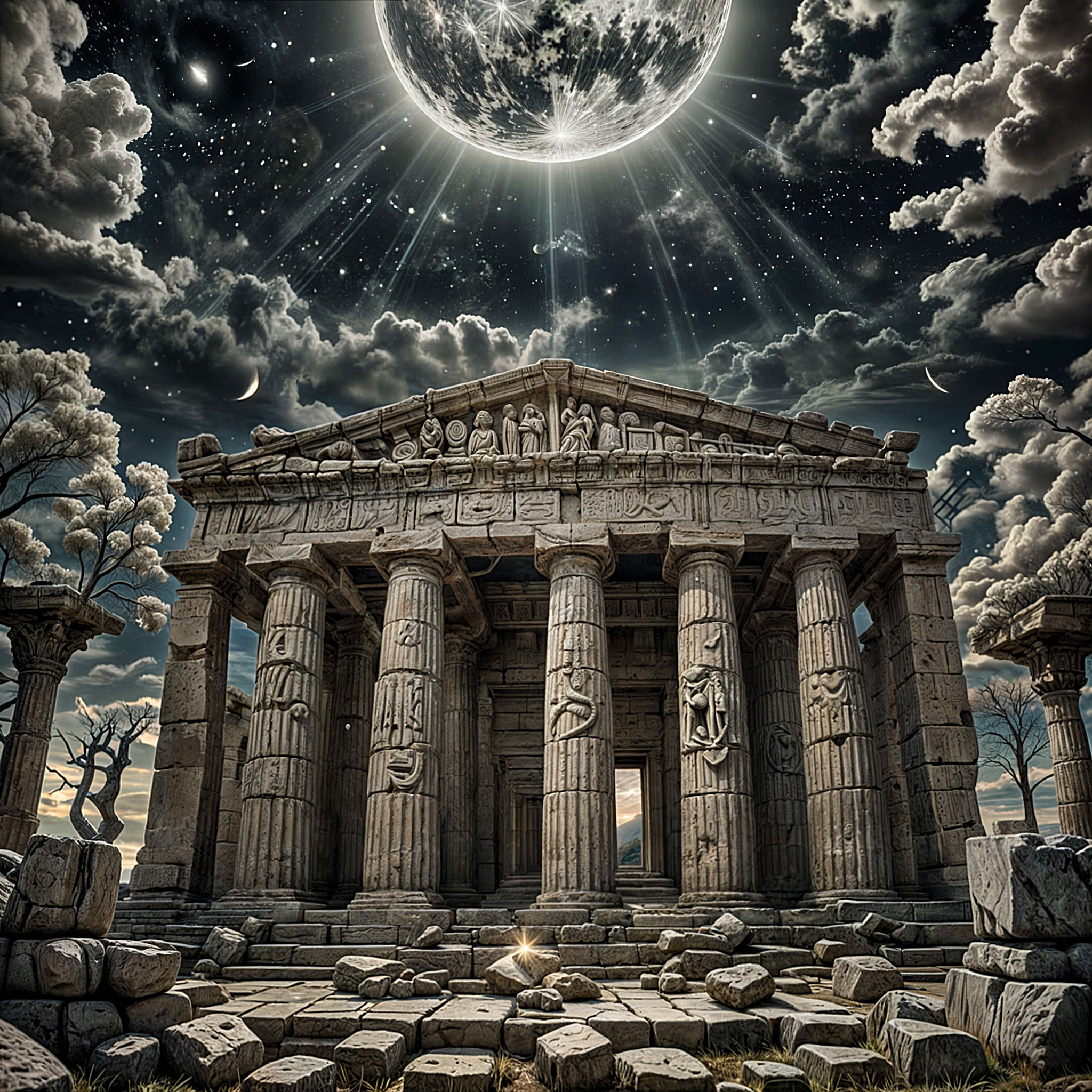The power of the Moon: How its phases influence our decisions
- Analysis by Vasilios Takos -The Moon (or Selene), whose name is derived from "selas," meaning light, is a timeless symbol of the night and has exerted a profound influence on human life. Since antiquity, its phases have been linked to mythologies, religious rituals, and the understanding of nature. However, its influence is not limited to tradition alone. In our daily lives, the Moon's different phases affect our emotions, decision-making, and the way we perceive the world.
By studying the phases of the Moon, we can decode how its changes trigger new beginnings, culminations, and renewal periods. Connecting with the lunar cycle is not merely spiritual; it is a practical tool that helps us plan our lives in harmony with the natural flow of energy.
The Moon holds significant importance in many cultures and mythologies worldwide. In Greek mythology, the Moon was associated with the goddess Artemis, goddess of the moon, nature, and hunting. Artemis was often depicted with a bow in hand and lunar light spreading around her, emphasizing her connection to the moon's phases.
In Roman mythology, the Moon, known as Luna, is associated with feminine energy, fertility, and protection, often portrayed as a powerful she-wolf. Luna stands beside Alpha, the leader of the pack, and together they rule with equal rights. Like the queen of the Moon, Luna protects and guides the pack, earning respect and loyalty, with her power reflected in the Moon's cycle.
In Chinese tradition, the Moon is inextricably linked to the myth of Chang'e, the Moon goddess, who resides there with her rabbit. This myth, filled with emotional intensity, tells the story of Chang'e, who swallowed the elixir of immortality to protect it from Pang Meng and ascended to the Moon. This tale, one of the four great Chinese myths, highlights the Moon's cyclical nature and its relationship with romantic imagination, immortality, and constant seeking. Every year, the Chinese honor Chang'e with the Mid-Autumn Festival, filled with reverence and nostalgia for the beloved Moon goddess. The Mid-Autumn Festival (or Moon Festival) is a traditional Chinese celebration held on the 15th day of the eighth month of the Chinese lunar calendar. It honors the Moon and kinship, emphasizing harvest and family unity. During the festival, people enjoy traditional foods and partake in rituals associated with the Moon and its wisdom, as well as the story of Chang'e.
In many other traditions, the Moon is considered a bearer of wisdom and revelatory powers, offering enlightenment to the human soul. The Moon was used for timekeeping, determining calendars, festivals, and agricultural seasons. With its phases, the Moon served as a compass for many cultures, and even today, it has a strong influence on collective consciousness, as many people use its phases to align their decisions and reconnect with nature.
New Moon is the first phase of the lunar cycle and occurs when the Moon is positioned directly between the Earth and the Sun, with its invisible side facing Earth. This phase is associated with new beginnings, planting new ideas, and setting goals for the future. It is a period of introspection and reorganization, offering the opportunity to reflect on what we want to bring into our lives and to start new projects with positive energy.
The New Moon encourages actions that promote growth and evolution. Being the phase of the "dark" Moon, it is often preferred for letting go of the old, clearing out, and addressing internal matters. It is also the best time to set intentions and take the first step toward realizing new goals.
Waxing Moon is the phase following the New Moon and lasts until the Full Moon. This period brings energy and momentum for growth and progress. As the Moon becomes brighter, the opportunities for action and expansion increase, making it the ideal time to move forward with our plans. It is a period that favors the realization of goals and the strengthening of new ventures.
During the Waxing Moon, energy is more active and supports progress on all levels. It is the appropriate phase to focus on expanding our work, developing new relationships, and achieving long-term goals. The outcomes of this phase are usually positive and encouraging, as the energy of the universe favors growth and advancement, both personally and professionally.
Full Moon is the phase of the lunar cycle that occurs when the Moon is directly opposite the Sun, with its full brightness shining in the sky. This phase signifies culmination and completion. It is a time of intense emotional charge and internal tension, as the energies invested during the previous Waxing Moon phase come to fruition. The Full Moon brings to light what has emerged during the cycle, making it ideal for reflection, emotional balancing, and recognizing the outcomes of our actions.
On a personal level, the Full Moon often brings intense emotional outbursts, revelations, and cathartic moments. It is a period during which we may fully understand situations that were previously unclear or hidden. Often, conflicts or revelations are inevitable, as the Moon's brightness exposes what had remained hidden or unresolved in the dark. This makes the Full Moon the perfect time to let go of what no longer serves us and to accept the results of our choices, paving the way for new beginnings in the future.
Additionally, the Full Moon is often associated with the completion of cycles or the achievement of goals. When efforts made over months reach their conclusion, we may feel great satisfaction or relief, but also pressure from the outcomes. This phase encourages us to recognize our successes and acknowledge our mistakes to move forward with a clear mind into the next phase. The Full Moon often brings a sense of closure and preparation for the next cycle, giving us the opportunity to readjust our goals and strengthen our connection with our inner self.
Waning Moon is the final phase of the lunar cycle, beginning after the Full Moon and concluding with the New Moon. During this period, the Moon starts to lose its brightness and diminish, reflecting a process of internal cleansing and release. It is the phase that reinforces the need to distance ourselves from what no longer serves us—whether it be toxic relationships, old habits, or unfulfilled goals.
Discover how you will be personally affected! Visit our page here and schedule a session now to learn more based on your own horoscope.
The Waning Moon favors cleansing and acceptance of endings, preparing the ground for the new beginnings brought by the New Moon. It is the ideal time for reflection, leaving behind failures and negative aspects, and allowing life to renew itself. This phase invites us to look at the past with wisdom and to forgive, both others and ourselves, so that we can move forward with a clear mind and heart.
During this period, goals that were not completed during the cycle may require reevaluation. It is a phase of less action and more introspective approach, as the energy shifts towards internal processes, self-definition, and preparation for new beginnings. The Waning Moon encourages us to remove obstacles and make room for renewal, laying the groundwork for a brighter and more fulfilling life in the next phase of the cycle.
Aligning activities with the Moon's phases can provide significant benefits in daily life, as each phase activates different energies. During the New Moon, focus on embracing new ideas and starting new projects or relationships. The Waxing Moon is ideal for developing and strengthening your efforts. The Full Moon brings culmination and revelations, making it suitable for achieving major goals. Finally, the Waning Moon supports release, cleansing, and internal reorganization.
Connecting with your personal energy and rhythm is essential for leveraging these phases. For instance, during phases of increasing Moon energy (such as the Waxing Moon), take on activities that require energy and dynamism. Conversely, during the Full Moon and Waning Moon, focus on completion, acceptance, and internal cleansing, allowing yourself to recover and prepare for new beginnings.
The Moon, with its phases, serves as a natural guide for our lives, offering us the opportunity to synchronize with the rhythm of nature. Its different phases provide unique opportunities for introspection, action, completion, and renewal. Observing the Moon and connecting with the energies of each phase can empower our decisions and help us live more strongly and consciously. Everyone is encouraged to tune into the Moon's energy and integrate it into their daily lives.






